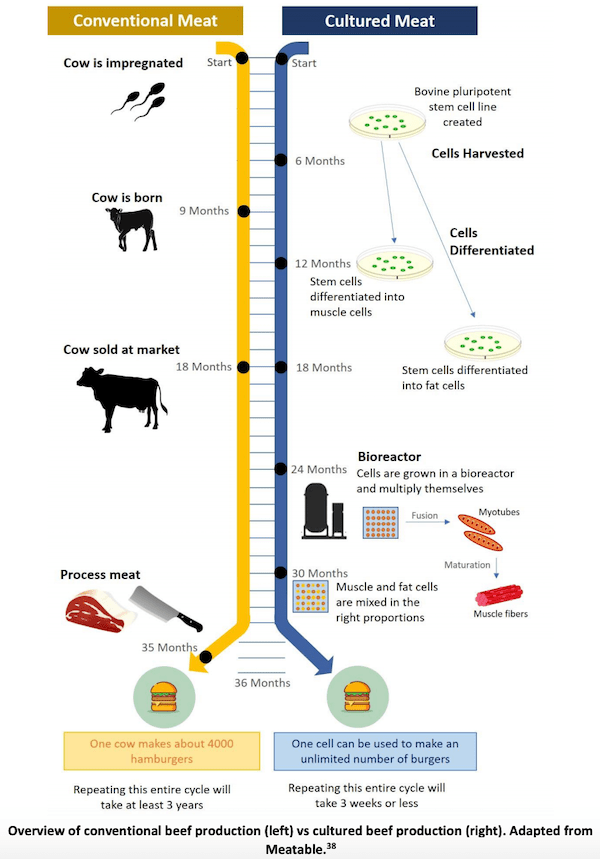When the stock market shakes out and investors are forced to reposition and reallocate funds, we often see new industries and new concepts more rapidly evolve and prosper. Jacob Bunge wrote an interesting article last week that pertained to “plant-based” meat companies lowering prices and working towards becoming more competitive. Makers of plant-based meat alternatives are cutting prices, as startups compete with food-industry giants for slices of the rapidly growing market. You can read the full article HERE.
Impossible Foods Inc. recently announced that it had reduced wholesale prices for its products by -15%. Big food companies — including Nestlé SA, Smithfield Foods Inc., Cargill Inc. and food distributor Sysco Corp. — have recently set plans to introduce their own meat-free patties, sometimes at lower prices than those charged by startups, like Impossible, that helped popularize plant-based products.
Impossible and rival Beyond Meat Inc. are jockeying with food-industry giants for a plant-based meat alternative market that is growing faster than sales of traditional meat. Plant-based meat sales in U.S. retail stores totaled a little over $1 billion for the 52 weeks ended Jan. 25, according to Nielsen, up +14% from the prior year. Sales of traditional meat grew +0.8% to $96 billion over that period.
Impossible and Beyond say they use less grain, water, and energy to make burgers from soy and pea protein than companies that feed, slaughter, and transport livestock. But the plant-based production processes are more expensive than traditional burger making, partly because meat mimics are made on a scale far smaller than the global meat industry.
Impossible and Beyond say they are working to change that dynamic by adding more manufacturing plants and making their processing techniques more efficient. A lower price point will make their products more appealing to customers, plant-based food proponents say.
Impossible said its -15% price cut would reduce what it charges for direct sales of its plant-based meat to about $7.90-$8.50 a pound. Impossible said it couldn’t specify how the price cut would affect restaurants and retailers that buy its products through distributors.
Beyond Chief Executive Ethan Brown said competitors are trying to undercut the El Segundo, Calif.,-based company on price. So far, he said, Beyond has resisted broadly discounting its burgers, but the company aspires to match the price of traditional meat with at least one of its products by 2024. For what it’s worth, Beyond reported a -$452,000 quarterly loss last quarter, though sales more than tripled.
My worry is our livestock production costs could be moving higher each year as we are forced to navigate increasing regulations associated with climate change and clean energy. But at the same time, lab-grown and plant-based meat production costs could be working lower with quality and taste getting better. I still see huge opportunities for U.S. livestock exports but I do worry about longer-term market share perhaps being lost to what could become a cheaper substitute. Stay on top of these headlines especially as we see more big players getting into the space.
I was sent an interesting white paper that was released by IP Pragmatics Limited titled “Future Food Sources: Market Developments and Intellectual Property Landscapes“. It’s a very interesting read…







